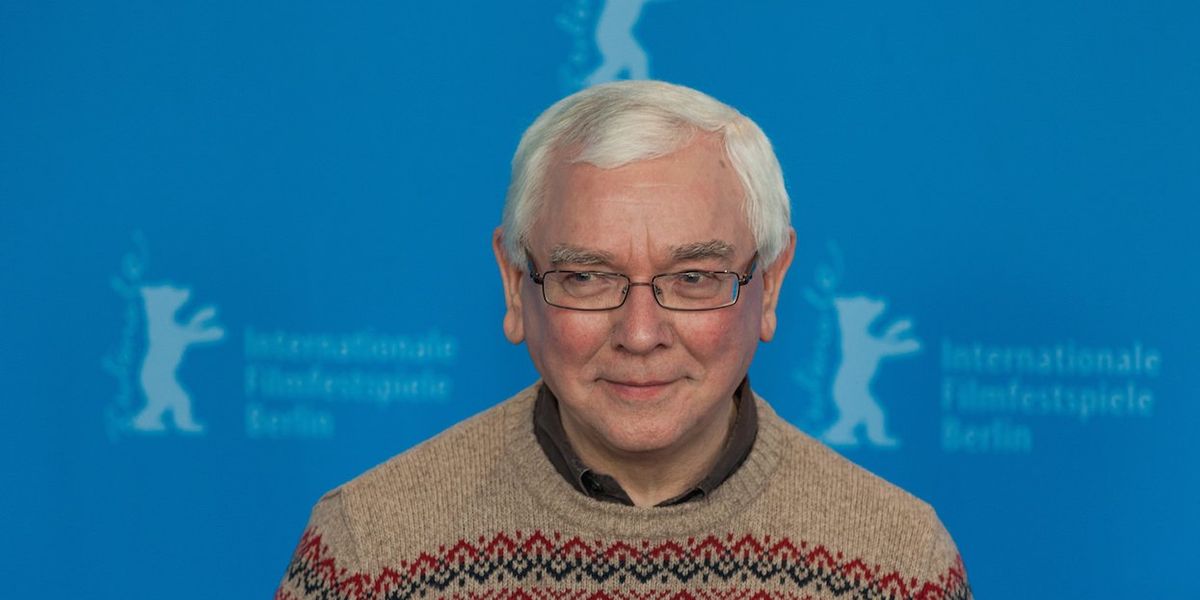Remembering the Great, Gay Filmmaker Terence Davies, a Poet of Cinema
Author: Trudy Ring

Terence Davies’s films didn’t draw huge audiences or make lots of money. But they almost always garnered glowing reviews, and they had such a beauty and a haunting quality that he was considered one of the greatest directors of his generation.
Davies died October 7 at his home in Mistley, England, at age 77. His manager, John Taylor, said he died “peacefully” after a brief illness.
He was a gay man who had difficulty accepting his sexuality, something that informed his films, which he wrote as well as directed. “Davies has turned his ambivalence about being gay and his feelings of alienation into personal, poetic cinema,” Loren King wrote in The Advocate in 2016.
He grew up in a working-class Catholic family in Liverpool, the youngest of 10 children, and his semi-autobiographical films Distant Voices, Still Lives (1988) and The Long Day Closes (1992) are set in that milieu. His father was abusive, like the father portrayed by Pete Postlethwaite in Distant Voices, Still Lives. The story, such as it is, is told largely through his offspring’s memories. “The film has no narrative development in the conventional sense,” David Wilson wrote in Sight & Sound upon its release. “It is built out of incidents, moods, fragments of a family life.”
Davies was only 7 when his father died of cancer, and his home became happier after that, as reflected in The Long Day Closes. Its young protagonist, Bud, enjoys the love of his widowed mother and his older siblings, but life isn’t an unalloyed joy; he’s bullied at school and is just starting to recognize his homosexuality, which evokes mixed feelings in him. He finds solace in movies and popular music. The film uses many snippets of songs as well as sound clips from movies, including The Magnificent Ambersons and Meet Me in St. Louis. “These fragments evoke a postwar England starved for beauty, fantasy and a place to escape,” New York Times critic Stephen Holden wrote.
Music figured importantly in many of Davies’s films. “When critics referred to Mr. Davies’s film dramas as musicals, they were only half joking,” Anita Gates noted in a New York Times obituary. “Songs are sung or heard in his movies just as they are in real life — at bars, at celebrations, at church and on the radio.”
He visited mid-20th-century Liverpool again in 2008’s Of Time and the City, a documentary but not a conventional one. “An elegiac composition of archival material, newly shot cityscapes, music, and Davies’s narration, it is both a nostalgic love letter and an ultimate farewell to a past and place riddled with pain, warmth, and first struggles with sexuality,” Advocate contributor Lawrence Ferber observed.
Davies explored childhood in a different setting with The Neon Bible, released in 1995. Adapted from John Kennedy Toole’s novel and set in the southern U.S., it portrays a boy from a troubled family whose closest emotional connection is with his free-spirited aunt.
Another literary adaptation was The House of Mirth (2000), a well-received film based on an Edith Wharton novel and starring Gillian Anderson as a woman navigating the hazards of high society in early-20th-century New York City. And some of Davies’s films dealt with literary figures. A Quiet Passion (2016) featured Cynthia Nixon as the poet Emily Dickinson; Davies “possesses a poetic sensibility perfectly suited to his subject and a deep, idiosyncratic intuition about what might have made her tick,” New York Times critic A.O. Scott observed.
His last film, Benediction, released in the U.S. last year, dealt with the life of gay British poet Siegfried Sassoon. It portrays both how he was haunted by the carnage he witnessed as a soldier in World War I and how he grappled with his sexuality in a homophobic world. The movie “captures the strange, specific alchemy by which contradictory fragments of identity assemble themselves into a soul,” Los Angeles Times reviewer Justin Chang noted.
Davies lived alone for most of his adult life, and he left no immediate survivors. He once told The Guardian that he wasn’t good at romantic relationships. “I’m not that good at life,” he said. “Because of that business of interaction between people and not being able to interpret things properly.”
From Your Site Articles
Original Article on The Advocate
Author: Trudy Ring



